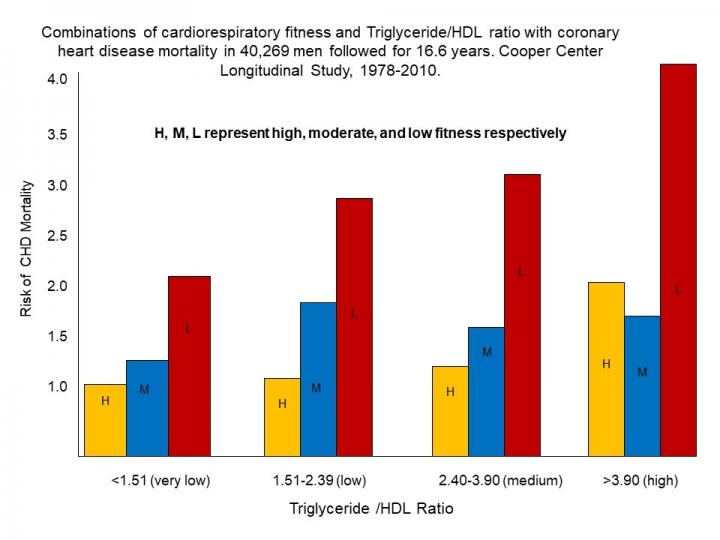Good cardiorespiratory fitness is the best way to avoid cardiovascular disease according to new research.
To improve fitness just a little bit improves the odds significantly for a life without cardiovascular disease.
Even if you have other risk factors, such as high blood pressure or high cholesterol levels, good fitness can counteract and offset these adverse effects, according to a new study.
The study lends support to the notion that it is better to have good cardiorespiratory fitness and some bad health values, possibly slightly overweight than bad cardiorespiratory fitness and being slender.

Credit: The Cooper Institute
One of the studies involved 40,000 men were followed since the late 1970s with an average of 17 years per person. The researchers measured blood values and the participants underwent several fitness tests. The researchers then correlated each person’s cause of death to their health status.
“While it is still extremely important to measure traditional risk factors such as resting blood pressure, blood cholesterol, triglyceride, and glucose levels, having a measure or estimate of the patient’s cardiorespiratory fitness level gives us additional information regarding cardiovascular disease risk,”
“The results of this study support this recommendation. Regardless of whether the blood TG:HDL ratio was low or high, having at least a moderate level of fitness provided some protection from CHD death when compared to having a low level of fitness.”
– Stephen W. Farrell, Ph.D., of The Cooper Institute, in Dallas, Texas.
Overall, the researchers note that it is still important to measure blood pressure, blood sugar levels, and cholesterol levels, as these can be indicators that a person may be at risk for cardiovascular disease, but they also stress the importance of keeping track your fitness level.
The subjects in the study who had normal to high fitness had two to three times greater chances of surviving the cardiovascular disease.
Reference:
SW Farrell, et al., Moderate Two High Levels of Cardiorespiratory Fitness Attenuate the Effects of Triglyceride to High-Density Lipoprotein Cholesterol Ratio on Coronary Heart Disease Mortality in Men, Mayo Clinic Proceedings, Volume 92, Issue 12 (December 2017) published by Elsevier. doi.org/10.1016/j.mayocp.2017.08.015























